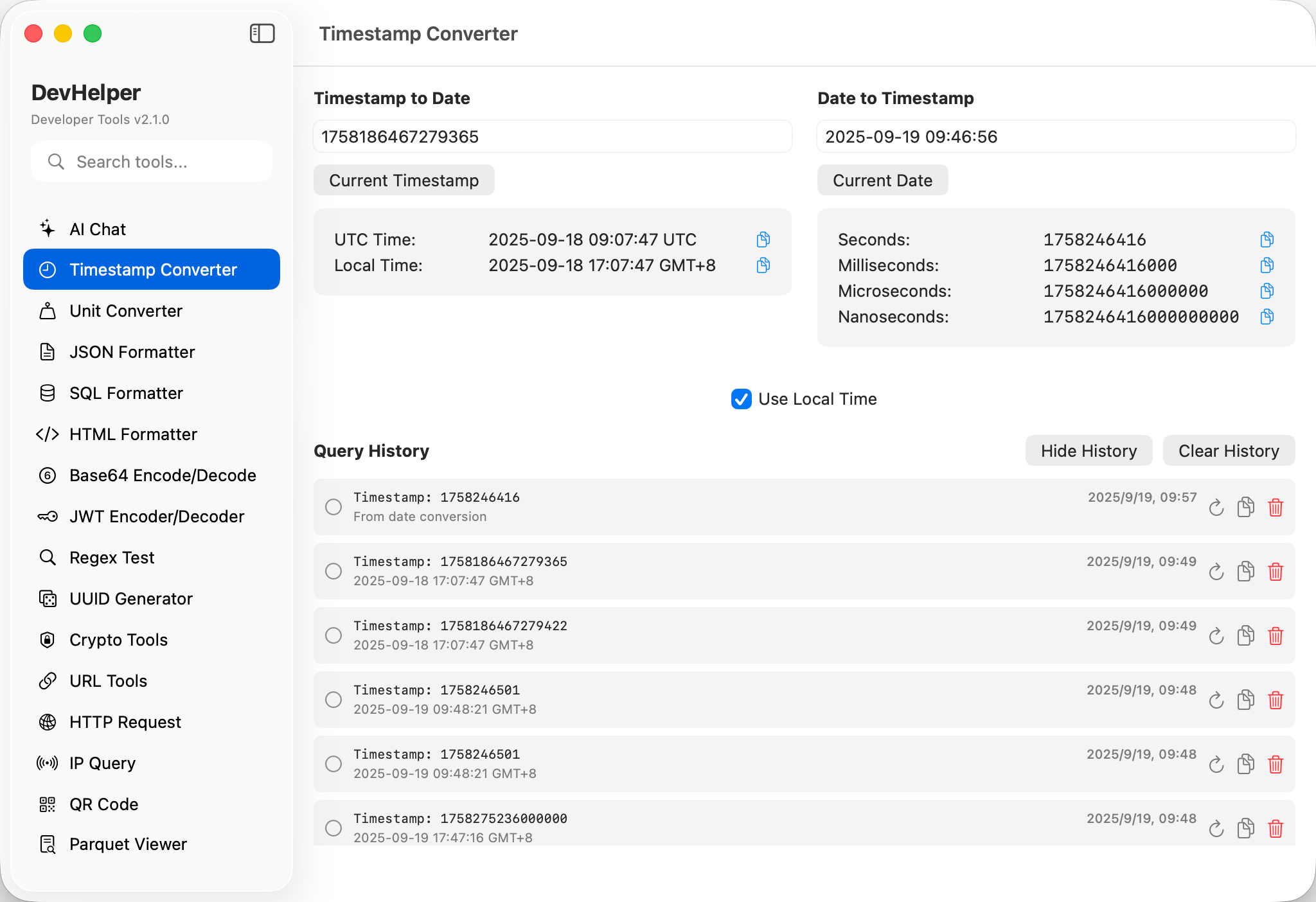Timestamp Converter Unix Epoch Time Converter for Developers
Convert between Unix timestamps and human-readable dates with comprehensive timezone support. Features real-time conversion, history tracking, and multiple date format options. Perfect for debugging applications, analyzing logs, and working with time-sensitive data.
